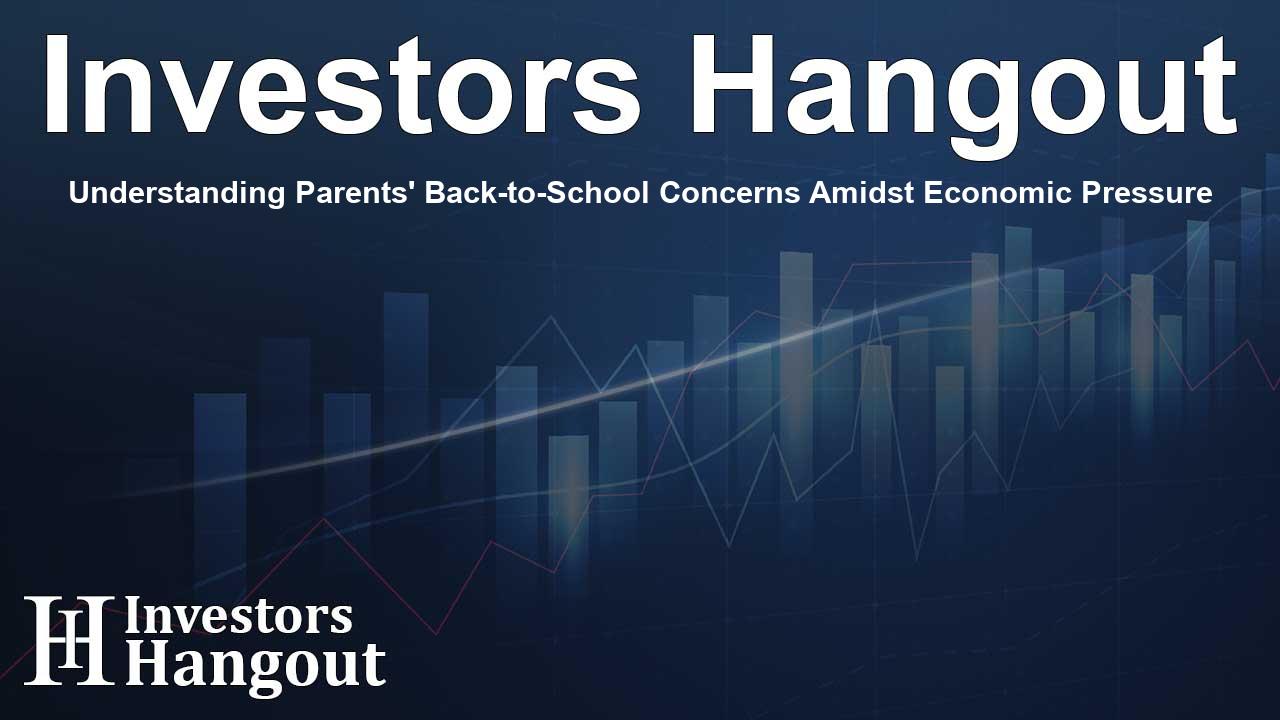Understanding Parents' Back-to-School Concerns Amidst Economic Pressure

Addressing Parents' Concerns During Back-to-School Season
As the school year approaches, parents across the nation are feeling the squeeze from rising prices and tariffs. A recent survey by Optimove Insights reveals that a significant majority of respondents are concerned about how economic factors are affecting their ability to shop for their children’s school needs. The results show a concerning trend; an astonishing 81% of parents expressed at least some worry regarding the impact of tariffs on their finances.
Key Insights from the Survey
Conducted among over 400 U.S. parents of K–12 students, primarily from households earning above $75,000 annually, the survey offers valuable insights into the current shopping landscape. Despite their economic awareness, only 22% of parents feel that brands genuinely aim to build relationships with them. This disparity suggests a pressing need for brands to align their marketing strategies with the emotional realities of these families.
Concerns Highlighted by Parents
In this survey, several notable trends emerged: 46% of parents cited budget constraints as their primary concern, reflecting the financial challenges faced when preparing for the school year. Interestingly, while 80% of parents prioritized quality over price, a striking 71% indicated that pricing significantly impacts their purchasing decisions. This indicates a precarious balance between maintaining quality and managing costs.
Brand Loyalty and Consumer Expectations
Discounts and promotions matter greatly, with 78% of parents indicating such offers could boost brand loyalty, despite 87% expressing a likelihood to repeat purchases from trusted brands. However, a staggering 60% believe that brands are primarily focused on making sales rather than forming meaningful connections.
The Value of Timely Communication
Effective communication is crucial; 67% of parents appreciate timely and relevant messaging. However, marketers must tread carefully, as 85% of survey respondents reported that they would unsubscribe from messages if they felt overwhelmed. This presents a clear call for marketers to strike a carefully considered balance of frequency and tone in their communications.
Experts Weigh In
Rony Vexelman, VP of Marketing at Optimove, emphasizes that changing economic conditions necessitate a shift in how brands interact with customers. “Brands that communicate with empathy and personalization will stand out,” he remarks. Furthermore, Vexelman highlights that those adopting Positionless Marketing can better adapt to family needs, fostering loyalty and driving customer lifetime value.
Strategies for Brands During the Back-to-School Season
In light of these findings, Optimove suggests several strategies for brands eager to support families during this crucial shopping period:
- Lead with Empathy: Messages should reflect an understanding of economic pressure. A supportive tone can resonate well with parents.
- Emphasize Value: Highlight savings through promotions, bundles, or loyalty programs that offer long-term advantages.
- Support Budget Flexibility: Options like buy-now-pay-later or layaway plans can alleviate financial strain.
- Balance Personalization with Respect: Utilize data for timing and relevance, but avoid overwhelming consumers with too much messaging.
- Act with Agility: Equip marketing teams with tools to respond quickly to market dynamics, enhancing trust and relevance.
Positionless Marketing: A Game-Changer
Ultimately, the report underlines the importance of responsive brands. Parents are more inclined to respond positively to brands demonstrating empathy and clarity in their communications. Positionless Marketing empowers marketers with autonomy, enabling them to deliver timely, context-aware communications, crucial during economic fluctuations. By breaking down traditional silos, brands can engage families effectively this back-to-school season.
Frequently Asked Questions
What are the main concerns for parents during the back-to-school season?
Parents are mostly worried about rising prices, budget constraints, and the impact of tariffs on their back-to-school shopping.
How can brands connect better with parents?
Brands should aim to establish genuine relationships rather than simply focusing on sales. Empathy, timely communication, and understanding parents' concerns are key.
What marketing strategies are recommended for the back-to-school season?
Brands should lead with empathy, emphasize value, support budget flexibility, balance personalization, and act with agility to effectively meet parents' needs.
Why is Positionless Marketing important?
Positionless Marketing allows marketers to act independently and responsively, enabling them to meet consumers' expectations in real time during sensitive economic periods.
How can parents feel supported by brands?
By providing relevant promotions, understanding economic stress, and maintaining clear communication, brands can create a supportive shopping environment for parents.
About The Author
Contact Hannah Lewis privately here. Or send an email with ATTN: Hannah Lewis as the subject to contact@investorshangout.com.
About Investors Hangout
Investors Hangout is a leading online stock forum for financial discussion and learning, offering a wide range of free tools and resources. It draws in traders of all levels, who exchange market knowledge, investigate trading tactics, and keep an eye on industry developments in real time. Featuring financial articles, stock message boards, quotes, charts, company profiles, and live news updates. Through cooperative learning and a wealth of informational resources, it helps users from novices creating their first portfolios to experts honing their techniques. Join Investors Hangout today: https://investorshangout.com/
The content of this article is based on factual, publicly available information and does not represent legal, financial, or investment advice. Investors Hangout does not offer financial advice, and the author is not a licensed financial advisor. Consult a qualified advisor before making any financial or investment decisions based on this article. This article should not be considered advice to purchase, sell, or hold any securities or other investments. If any of the material provided here is inaccurate, please contact us for corrections.
